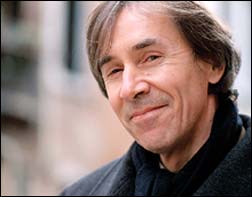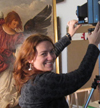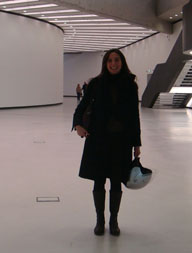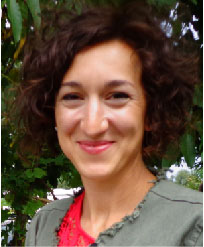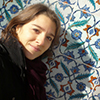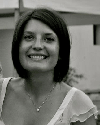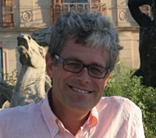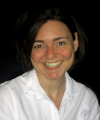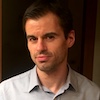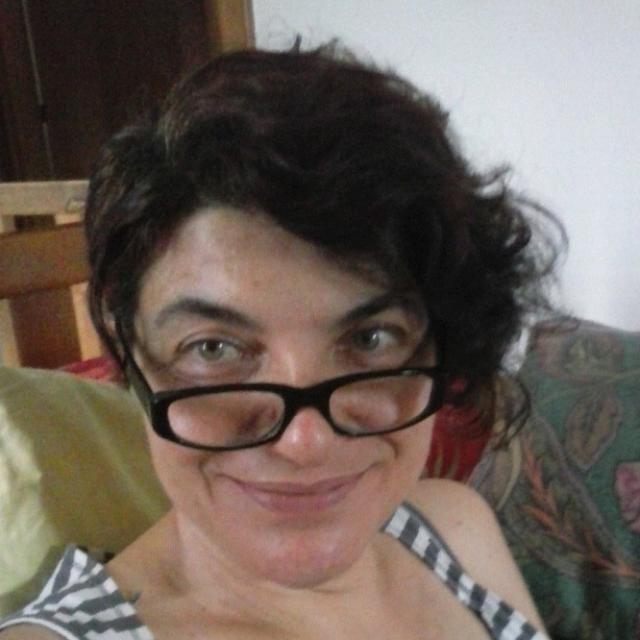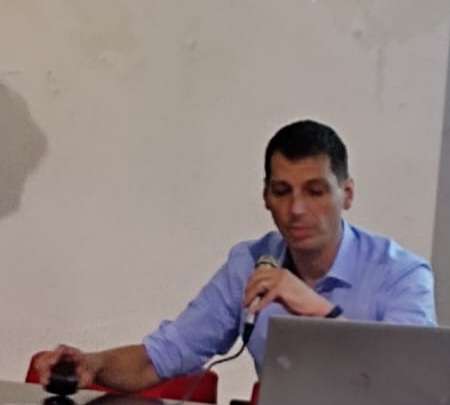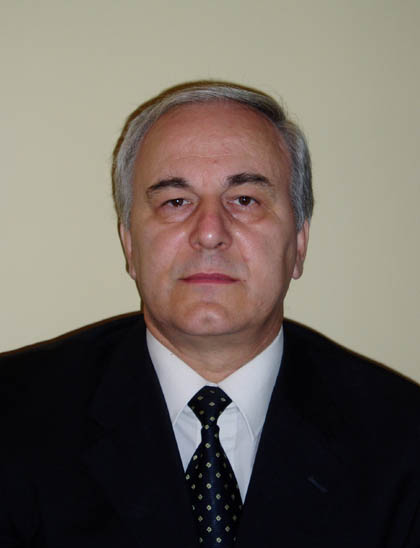Studying at the University of Verona
Here you can find information on the organisational aspects of the Programme, lecture timetables, learning activities and useful contact details for your time at the University, from enrolment to graduation.
Academic calendar
The academic calendar shows the deadlines and scheduled events that are relevant to students, teaching and technical-administrative staff of the University. Public holidays and University closures are also indicated. The academic year normally begins on 1 October each year and ends on 30 September of the following year.
Course calendar
The Academic Calendar sets out the degree programme lecture and exam timetables, as well as the relevant university closure dates..
| Period | From | To |
|---|---|---|
| Sem. 1A | Sep 24, 2018 | Nov 10, 2018 |
| Sem. 1B | Nov 19, 2018 | Jan 12, 2019 |
| Sem. 2A | Feb 18, 2019 | Mar 30, 2019 |
| Sem. 2B | Apr 8, 2019 | Jun 1, 2019 |
| Session | From | To |
|---|---|---|
| Sessione d'esame invernale | Jan 14, 2019 | Feb 16, 2019 |
| Sessione d'esame estiva (gli esami sono sospesi durante la sessione di laurea) | Jun 3, 2019 | Jul 27, 2019 |
| Sessione d'esame autunnale | Aug 26, 2019 | Sep 21, 2019 |
| Session | From | To |
|---|---|---|
| Sessione di laurea estiva | Jul 8, 2019 | Jul 13, 2019 |
| Sessione di laurea autunnale | Nov 4, 2019 | Nov 9, 2019 |
| Sessione di laurea invernale | Mar 30, 2020 | Apr 4, 2020 |
| Period | From | To |
|---|---|---|
| Festa di Ognissanti | Nov 1, 2018 | Nov 1, 2018 |
| Sospensione dell'attività didattica | Nov 2, 2018 | Nov 3, 2018 |
| Festa dell’Immacolata | Dec 8, 2018 | Dec 8, 2018 |
| Vacanze di Natale | Dec 24, 2018 | Jan 5, 2019 |
| Vacanze di Pasqua | Apr 19, 2019 | Apr 23, 2019 |
| Sospensione attività didattica | Apr 24, 2019 | Apr 27, 2019 |
| Festa della liberazione | Apr 25, 2019 | Apr 25, 2019 |
| Festa del lavoro | May 1, 2019 | May 1, 2019 |
| Sospensione dell' attività didattica | May 20, 2019 | May 20, 2019 |
| Festa del Santo Patrono | May 21, 2019 | May 21, 2019 |
| Festa della Repubblica | Jun 2, 2019 | Jun 2, 2019 |
| Vacanze Estive | Aug 12, 2019 | Aug 17, 2019 |
Exam calendar
Exam dates and rounds are managed by the relevant Culture and Civilisation Teaching and Student Services Unit.
To view all the exam sessions available, please use the Exam dashboard on ESSE3.
If you forgot your login details or have problems logging in, please contact the relevant IT HelpDesk, or check the login details recovery web page.
Should you have any doubts or questions, please check the Enrollment FAQs
Academic staff
 bernard.aikema@univr.it (per tutti), aikemaforstudents@gmail.com (per studenti)
bernard.aikema@univr.it (per tutti), aikemaforstudents@gmail.com (per studenti)
 +39 045802 8197
+39 045802 8197

Bassetti Massimiliano
 massimiliano.bassetti@univr.it
massimiliano.bassetti@univr.it
 045802 8376
045802 8376
 cristinabeltrami@gmail.com
cristinabeltrami@gmail.com
 maurizio.boscaini@univr.it
maurizio.boscaini@univr.it
 anita.casarotto@univr.it
anita.casarotto@univr.it
 stefania.cretella@univr.it
stefania.cretella@univr.it
 marco.dallavalle@univr.it
marco.dallavalle@univr.it
 vincenzo.giannotti@univr.it
vincenzo.giannotti@univr.it
 piergiovanna.grossi@univr.it
piergiovanna.grossi@univr.it
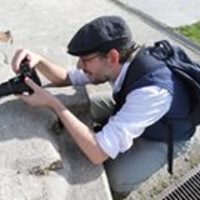
Guidarelli Gianmario
 gianmario.guidarelli@univr.it
gianmario.guidarelli@univr.it
 elisa.lerco@univr.it
elisa.lerco@univr.it
 francesco.lupi@univr.it
francesco.lupi@univr.it
 stefano.maltese@univr.it
stefano.maltese@univr.it

Mastrocinque Attilio
 attilio.mastrocinque@univr.it
attilio.mastrocinque@univr.it
 +39 045802 8386
+39 045802 8386
 marco.menato@univr.it
marco.menato@univr.it
 alberto.scandola@univr.it
alberto.scandola@univr.it
 carlo.vannini@accademiabelleartiverona.it
carlo.vannini@accademiabelleartiverona.it
 gianmaria.varanini@univr.it
gianmaria.varanini@univr.it
Study Plan
The Study Plan includes all modules, teaching and learning activities that each student will need to undertake during their time at the University.
Please select your Study Plan based on your enrollment year.
1° Year
| Modules | Credits | TAF | SSD |
|---|
2° Year activated in the A.Y. 2019/2020
| Modules | Credits | TAF | SSD |
|---|
3° Year activated in the A.Y. 2020/2021
| Modules | Credits | TAF | SSD |
|---|
| Modules | Credits | TAF | SSD |
|---|
| Modules | Credits | TAF | SSD |
|---|
| Modules | Credits | TAF | SSD |
|---|
| Modules | Credits | TAF | SSD |
|---|
Legend | Type of training activity (TTA)
TAF (Type of Educational Activity) All courses and activities are classified into different types of educational activities, indicated by a letter.
Medieval History (i) (2019/2020)
Teaching code
4S01294
Teacher
Coordinator
Credits
6
Language
Italian
Scientific Disciplinary Sector (SSD)
M-STO/01 - MEDIEVAL HISTORY
Period
Sem 2B dal Apr 6, 2020 al May 30, 2020.
Learning outcomes
L’insegnamento di Storia medievale si propone di far acquisire ai discenti un patrimonio di conoscenze che saranno particolarmente utili nell’esercizio della loro professione, attraverso un inquadramento generale sulla storia della civiltà medievale (manuale) e la verifica della metodologia storica applicata a un caso concreto particolare.
Program
After a short introduction, during which general concepts like Middle Ages, historical sources, and typologies of sources will be discussed, the course will synthetically analyse the following topics:
- Late Antiquity and the diffusion of Christianity (the growth of new religious communities that became a fundamental element in the Roman Empire and at the same time a tool of government)
- Western Europe in the early Middle Ages and his regna (the end of the Western Roman Empire, migrations, the birth of new political kingdoms based on ethnic distinctions)
- the Byzantine and Islamic Mediterranean (the progressive rupture of the unity of the Mediterranean See under the Arabic expansion and the role of Byzantium)
- Carolingian Europe (Lombard Italy, the Frankish expansion, Charlemagne and the roots of contemporary Europe)
- the seigniorial order (post-Carolingian Europe, the “feudal society”, the control over work and security in the cities and in the countryside)
- Church reforms (the ideological and political conflicts related to the growth of papal prestige and of the Communal autonomy)
- Empire and Papacy in the Late Middle Ages (conflicts related to different concepts and practice of power between political and spiritual authority)
- political institutions of the Late Middle Ages (political experimentations in order to give equilibrium to representation and participation within society)
- society and culture in the Middle Ages (the various aspects related to knowledge, its access and its administration)
- Religious experiences in the Middle Ages (principal religious movements that led to reforms and to very different experiences) - the economies of the Middle Ages (the organisation of work and commerce, with a long lasting perspective)
In the last section of the course the outstanding figure of Charlemagne will be shortly taken into exam, starting with the analysis of the book in the program. The Veronese context will also be analysed through the study of some original sources that will be introduced, commented and translated by the lecturer. These last lectures will also be followed by two didactical excursions to which students are asked to take part. The taking part to these activities will be positively evaluated during the final exam.
Students attending the lectures will receive at the beginning of the course a complete calendar of the didactical activities, with date and subjects of every single lecture. During the academic year the lecturer will receive students during the office hours, published on the web page and in the announcements place; students are recommended to fix via e-mail an appointment with the lecturer.
All students, attending the lectures or not, will be asked to study the introductory book: G. Sergi, L’idea di medioevo. Fra storia e senso comune, Rome, Donzelli, 2005.
All students must learn the Medieval History thorigh a manual, to be chosen among the following titles: G. Vitolo, Medioevo. I caratteri originali di un’età di transizione, Milan, Sansoni, 2000; T. Lazzari, G. Albertoni, Introduzione alla storia medievale, Bologna, Il Mulino, 2015; A. Zorzi, Manuale di storia medievale, Novara, Utet, 2016. Students with good school knowledge can choose the more complex: R. Bordone, G. Sergi, Dieci secoli di medioevo, Torino, Einaudi, 2009.
The program is completed by the study of: A. Barbero, Carlo Magno. Un padre dell’Europa, Bari, Laterza, 2000.
Students attending lectures, and the one inscribed to the course, will receive didactical material related to the lectures on the e-learning platform; these materials are considered part of the exam program.
Students not attending lectures can receive help by the lecturer in order to define the program and to study the manual. All students not attending lectures will be asked to choose an additional book among the following titles: P. Brown, Il riscatto dell’anima. Aldilà e ricchezza nel primo cristianesimo occidentale, Torino, Einaudi, 2015; T. Lazzari, Le donne nell’alto Medioevo, Milano-Torino, Bruno Mondadori, 2010; S. Gasparri, Voci dai secoli oscuri. Un percorso nelle fonti dell’alto medioevo, Roma, Carocci, 2017; M. Costambeys, M. Innes, S. Maclean, The Carolingian World, Cambridge, Cambridge University Press, 2011; A.A. Settia, Castelli medievali, Bologna, il Mulino, 2017; J.M.H. Smith, L’Europa dopo Roma. Una nuova storia culturale 500-1000, Bologna, il Mulino, 2008; C. Wickham, Sonnambuli verso un nuovo mondo. L’affermazione dei comuni italiani nel XII secolo, Roma, Viella, 2017; G. Milani, I comuni italiani. Secoli XII-XIV, Bari, Laterza, 2005; P. Grillo, Le guerre del Barbarossa. I comuni contro l’imperatore, Roma-Bari, Laterza, 2014; J.C. Maire Vigueur, E. Faini, Il sistema politico dei comuni italiani (secoli XII-XIV), Milano-Torino, B. Mondadori, 2010; A. Zorzi, Le signorie cittadine in Italia (secoli XIII-XV), Milano-Torino, B. Mondadori, 2010; P. Freedman, Il gusto delle spezie nel Medioevo, Bologna, Il Mulino, 2009. The choice of the additional text can be made autonomously; differently it can be discussed with the lecturer during office hours or per e-mail.
Didactical methods:
frontal lectures on main subjects will be followed by discussions with students; on some subjects texts and sources will be read and analysed, followed by a discussion on their content.
| Author | Title | Publishing house | Year | ISBN | Notes |
|---|---|---|---|---|---|
| Barbero, Alessandro | Carlo Magno. Un padre dell’Europa | Laterza | 2000 | ||
| Settia, Angelo A. | Castelli medievali | Il Mulino | 2017 | ||
| Bordone Renato, Sergi Giuseppe | Dieci secoli di medioevo | Einaudi | 2009 | ||
| Milani, Giuliano | I comuni italiani. Secoli XII-XIV | Laterza | 2005 | 9788842072478 | |
| Freedman, Paul | Il gusto delle spezie nel Medioevo | Il Mulino | 2009 | 8815246711 | |
| Brown, Peter | Il riscatto dell’anima. Aldilà e ricchezza nel primo cristianesimo occidentale | Einaudi | 2016 | ||
| Vigueur, J.C. Maire; Faini, Enrico | Il sistema politico dei comuni italiani (secoli XII-XIV) | Bruno Mondadori | 2010 | 8861592155 | |
| Lazzari Tiziana, Albertoni Giuseppe | Introduzione alla storia medievale | Il Mulino | 2015 | ||
| Lazzari, Tiziana | Le donne nell’alto Medioevo | Bruno Mondadori | 2010 | 8861592198 | |
| Grillo, Paolo | Le guerre del Barbarossa. I comuni contro l’imperatore | Laterza | 2014 | 9788858111710 | |
| Zorzi, Andrea | Le signorie cittadine in Italia (secoli XIII-XV) | Bruno Mondadori | 2010 | 9788861592230 | |
| Smith, Julia M.H. | L’Europa dopo Roma, Una nuova storia culturale 500-1000 | Il Mulino | 2008 | ||
| Giuseppe Sergi | L’idea di medioevo. Fra storia e senso comune | Donzelli | 2005 | ||
| Zorzi, Andrea | Manuale di storia medievale | Utet | 2016 | ||
| Vitolo, Giovanni | Medioevo. I caratteri originali di un’età di transizione | Sansoni | 2000 | ||
| Chris Wickham | Sonnambuli verso un nuovo mondo. L’affermazione dei comuni italiani nel XII secolo | Viella | 2017 | 9788867286546 | |
| Costambeys Marios, Innes Matthew, MacLean Simon | The Carolingian World | Cambridge University Press | 2011 | ||
| Gasparri, Stefano | Voci dai secoli oscuri. Un percorso nelle fonti dell’alto medioevo | Carocci | 2017 |
Examination Methods
Evaluation criteria:
the oral exam consists in questions on subjects that are to be found in books and manuals in the program, as well as in the didactical material. The exam will last the necessary amount of time in order to determine an adequate knowledge of contents, as well as the ability of express them appropriately, the ability to create links between different subjects, the ability of analysis and of reasoning. The active participation to lectures and to further analysis will be positively evaluated. An in-itinere exam could be agreed with the lecturer at the beginning of the course in order to facilitate the final exam. The finale evaluation is counted in thirtieth, and will be expressed on the entire program.
Erasmus students are asked to write or to visit the lecturer at the beginning of the course in order to choose the best didactic activities and the final exam methodology.
Type D and Type F activities
| years | Modules | TAF | Teacher |
|---|---|---|---|
| 1° 2° 3° | "caro mostro. duecento anni di frankenstein" | F |
Nicola Pasqualicchio
(Coordinator)
|
| 1° 2° 3° | Lectures "Musiche/Culture/Civiltà" | F |
Vincenzo Borghetti
(Coordinator)
|
| 1° 2° 3° | Castelvecchio Lectures (City Art Museums) | F |
Alessandra Zamperini
(Coordinator)
|
| 1° 2° 3° | C.T.G. Lectures | F |
Alessandra Zamperini
(Coordinator)
|
| 1° 2° 3° | Graphic and photographic documentation of the archaeological artefacts: from traditional drawings to digital sources | F |
Diana Sergeeva Dobreva
(Coordinator)
|
| 1° 2° 3° | Giovedì' culturali dell'ISSR I ciclo | F |
Tiziana Franco
(Coordinator)
|
| 1° 2° 3° | Ceramica romana nell'Adriatico. Produzione, tipologia e distribuzione | F |
Diana Sergeeva Dobreva
(Coordinator)
|
| 1° 2° 3° | Univero’ 2018 | F |
Tiziana Franco
(Coordinator)
|
Career prospects
Module/Programme news
News for students
There you will find information, resources and services useful during your time at the University (Student’s exam record, your study plan on ESSE3, Distance Learning courses, university email account, office forms, administrative procedures, etc.). You can log into MyUnivr with your GIA login details: only in this way will you be able to receive notification of all the notices from your teachers and your secretariat via email and soon also via the Univr app.
Graduation
List of theses and work experience proposals
| theses proposals | Research area |
|---|---|
| Ambiti di tesi | Art & Architecture - Art & Architecture |
| Stage | Research area |
|---|---|
| Lavorare in archivio | Various topics |
